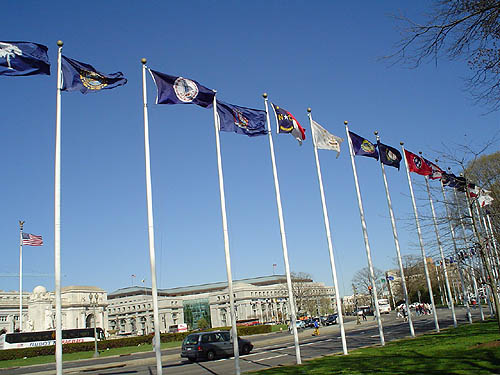States disagree on abortion access laws
While sixteen states enacted additional restrictions on abortion in 2014, seventeen states increased access to contraceptives and abortion services.
This article is the third in a three-part series discussing the recent court rulings on abortion laws. You can read Part One and Part Two here.
The U.S. Court of Appeals for the Fourth Circuit struck down a key provision in a North Carolina abortion law that required doctors to show ultrasound images of the fetus and provide detailed oral descriptions to any woman seeking an abortion. The Fourth Circuit held in December 2014 that these laws violated free-speech rights of doctors.
Prior to this ruling, North Carolina was one of the strictest states in the nation in regards to abortion rights. In 2014, sixteen states throughout the nation enacted twenty-seven anti-choice measures. Louisiana enacted four measures, the most anti-choice legislation from any one state in this past year.
Other states such as Indiana and Oklahoma have imposed burdensome regulations on abortion providers that seem to be intended to force these abortion clinics out of practice. These states have mandated that all physicians providing abortion services have “admitting privileges” at a local hospital within thirty miles. Admitting privileges are the rights of a physician to admit patients to a specific hospital and provide services within that facility.
The laws requiring that doctors have these privileges at nearby hospitals could force the closure of clinics whose doctors are unable to obtain admitting privileges. Proponents of the admitting privileges laws argue that these rights are important in the event an abortion procedure fails to go as planned. In this scenario, the patient would have to be rushed to the nearest emergency room.
On the other hand, opponents of the law claim that these types of laws place significant burdens on a woman’s right to an abortion, since doctors from out-of-town or out-of-state are simply not able to get these professional privileges. The opponents further argue that most abortion providers cannot meet the standard for gaining privileges, since so few of their patients actually end up needing hospital care.
At the same time, some states are undertaking efforts to increase access to contraception and abortion services. In 2014, seventeen states and the District of Columbia enacted twenty-two pro-choice measures. California enacted three pro-choice measures, which was more pro-choice legislation than any other state in 2014.
In California, the Department of Managed Health Care declared that any insurance plans eliminating or limiting coverage of abortion care are contrary to state law and the California Constitution. This law, one of the first of its kind in the nation, essentially requires abortion coverage by all health insurance plans in the state. Further, California adopted another unique measure which enhanced the Affordable Care Act’s contraceptive-coverage policy, ensuring that all health insurance plans provide coverage without co-pay of all of the contraceptives approved by the Food and Drug Administration.
It will be interesting to see whether some of the other stricter states in the South, such as Louisiana and Mississippi, make changes in the future to mirror North Carolina’s laws. It will be even more interesting to see how North Carolina’s most recent changes affect the numbers and procedures of abortions in the years to come.






